Managing incentive compensation is a meticulous task where even minor errors can have significant consequences for employee motivation and engagement. In the era of big data, where the volume of information to be processed is rapidly expanding, ensuring data reliability has become an essential priority. Even an error rate as low as 1% in the data can lead to incorrect bonuses for 100% of the workforce. This underscores the critical importance of rigorous management and maximum reliability in the information used for calculating and managing incentive compensation.
The challenges of Data Management
Ensuring data reliability goes beyond simple checks or manual reviews. The sheer volume and diversity of data required for incentive compensation make the process inherently complex, with data often originating from varied systems such as HR and sales platforms. Companies must navigate increasing challenges in collecting, integrating, and validating this information.
Data errors can arise from multiple sources, including human mistakes, inconsistencies between systems, or deficiencies in the quality of baseline data. Maintaining data repositories internally is a major challenge, prompting companies to explore innovative technological and organizational solutions.
Using ETL tools: automating the detection of inconsistencies
ETL (Extract, Transform, Load) tools are essential for managing data flows in modern organizations. In the context of incentive compensation, these tools are particularly valuable for automatically identifying and correcting inconsistencies. They enable data handling on multiple levels:
- Inconsistencies in the number of expected data flows: Ensuring all required information has been captured.
- Inconsistencies in the content of each flow: Analyzing data to verify that values and formats meet the company’s predefined standards, including syntax checks and validity tests for numerical data like sales or absences.
- Inconsistencies between data flows: ETL tools can detect discrepancies between data from different sources, preventing duplication, contradictions, or divergent interpretations that might distort final results.
By automating most control and validation tasks, ETL tools significantly reduce human error. They also integrate seamlessly with existing information systems, making them easier for payroll and compensation teams to adopt and use.
Digital workflows: enabling real-time collaboration
Digital workflows are another critical tool for ensuring the reliability of incentive compensation data. These processes facilitate real-time collaboration between various stakeholders within the company, making it easier to validate, adjust, and even create critical data.
For example, when HR data is deemed potentially unreliable, sharing it with managers for validation can be an effective way to ensure accuracy. By involving managers in this process, HR teams benefit from field-level feedback, allowing them to correct potential errors before payroll calculations are made. This proactive collaboration improves both data quality and employee trust in the compensation system.
In some cases, essential data for bonus calculations may not exist in the company’s central systems. For instance, daily attendance or specific activity details are often crucial for linking employees to a bonus plan. Digital workflows allow managers to input this data in real-time, creating a dedicated repository that directly feeds into the incentive compensation calculation process. This approach addresses gaps in traditional information systems.
Outsourcing calculations: a solution for optimization and security
Outsourcing the calculation of incentive compensation is a viable option for companies looking to alleviate the burdens of data management. By entrusting this task to specialized providers, businesses gain access to expert knowledge and additional assurances regarding the accuracy of results.
When an error is detected, for example through an ETL tool, an in-depth analysis may be required to determine its causes and implications. Outsourcing allows the provider to handle the entire correction process in close collaboration with internal teams. This enables HR departments to focus on decision-making while relying on a partner capable of providing short-term solutions to resolve issues and long-term strategies to prevent recurrence.
The tangible benefits of data reliability
While ensuring data reliability is a complex and time-intensive process, its benefits are substantial. By eliminating calculation errors and reducing the number of complaints, companies save time, lower costs, and enhance employee engagement.
One immediate benefit of reliable data is a reduction in disputes. When data is accurate, managers and HR teams spend less time addressing errors or inconsistencies in bonuses. Additionally, minimizing recalculations and overpayments improves the company’s reputation among employees, strengthening their trust in shared information.
Better data management also allows companies to anticipate future changes in incentive compensation more effectively. Whether responding to market trends, new regulations, or internal shifts, reliable data systems enhance adaptability and responsiveness.
Data management is a critical component of incentive compensation systems. Tools such as ETLs, digital workflows, and outsourcing provide effective solutions to ensure data quality and minimize errors. By investing in these technologies, companies not only improve efficiency but also foster employee trust.
The rise of artificial intelligence and automation promises to further transform data management. These technologies have the potential to enhance calculation accuracy, increase speed, and optimize the implementation of incentive compensation systems, making them more agile and responsive than ever.




